If you’ve recently seen a TV news item with a reporter discussing the state of Greece to the background of the parliament building, they most likely were broadcasting from Athens Plaza hotel, one of the three five-star hotels on Syntagma Square and the one whose balconies give the best view of the parliament. In recent weeks, whenever I was on Syntagma Square, I could always spot TV cameras on at least a dozen balconies.
We were at Syntagma Square yesterday and all the cameras seemed have gone. Greece has disappeared from foreign papers’ front pages and from TV news bulletins. Indeed, Greece is slowly returning back to normal and capital controls are gradually being lifted, though the emphasis here is on ‘slowly’ and ‘gradually’.
It is a telling sign that today’s biggest story is that of the leaked plan from former finance minister Yanis Varoufakis in case the country was forced to leave the euro, a plan which appears to have involved hacking into the systems of the Greek tax collecting agency. While the story is huge, it doesn’t have any direct impact on people’s lives or on the political situation.
And while many Greeks have left or are leaving for holiday — it is not uncommon for Greek businesses to close for the whole of August — the government has pushed some legislation through parliament, which was a precondition set by other eurozone counties to start negotiations on a third bailout package. A significant minority of MPs from the government parties voted against the proposals, which wouldn’t have passed if it wasn’t for the support of the three moderate opposition parties (the neo-Nazis and communists voted against, but people are neither surprised by this, nor are they taking this very seriously). More worryingly, the government hasn’t exactly been cheering the legislation it asked parliament to pass, so that we now have a government which has some interest in the situation of the country worsening. Thankfully, a significant majority of Greeks continue to say that the last-minute deal was better than any of the alternatives.
The past few weeks, I have often found myself thinking of a quote from Guiseppe Tomasi di Lampedusa’s The Leopard, a classic Italian novel: “everything needs to change, so everything can stay the same”.
A lot of things will change in Greece. Change is never easy. But it will be for the better.
Month: July 2015
Fire
Temperatures in Athens have been hitting the mid 30s for weeks. Today, a fairly strong wind was blowing through Southern Greece. These two combined make ideal conditions for wildfires. Indeed, and unfortunately, at several places around Athens, as well as in the southern Peloponnese, wildfires did appear.
The images of the fires on the hills surrounding Athens looked both impressive and scary when I saw them on the Internet. Even from our house, miles away from those hills, we could see thick clouds of smoke. Two water-dropping planes were constantly taking water from the Saronic Gulf in an attempt to battle the blaze. When I got a clearer view of the main fire early in the evening, it did look like they had at least had some success.
In the meantime, Greece has been given a little over seven billion euros in bridge financing from our friends in Europe — or, as the Greek government used to call them until recently: terrorists! criminals! Nazis! There’s no reason to get too excited about that just yet as most of this money will be used to pay bills that have arrived in recent weeks, but that the government had wisely left unopened. But more help is on its way, some of which is explicitly meant to kick-start the economy. Banks will open too, but it’s not yet clear whether this will happen on Monday as had initially been announced. Lifting capital controls is much, much harder than imposing them.
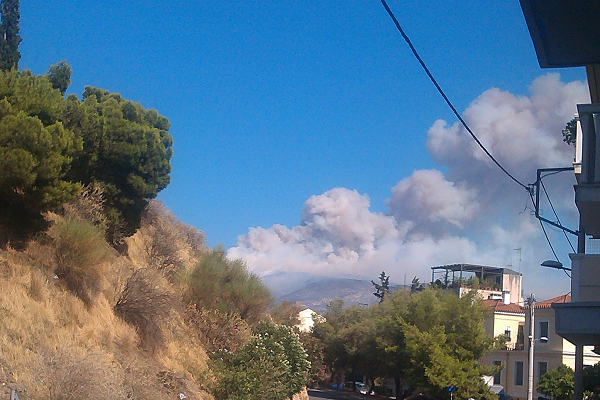
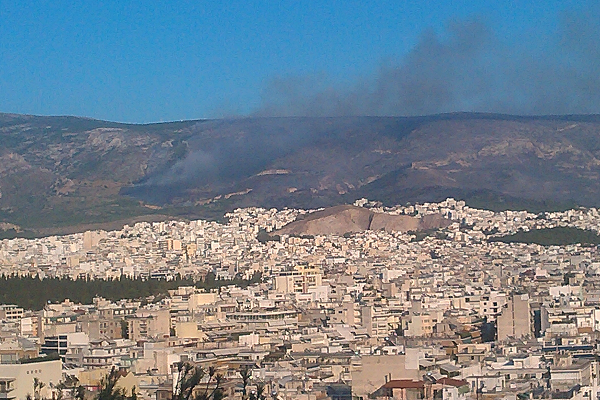
Last month, I gave a talk on Elliptic Curve Cryptography at the BSides London conference in, indeed, London, UK. It is the favourite of all the talks I have ever given. The video of that talk has been added to YouTube. I thought you might like it.
Athens to the dogs
When I first visited Athens ten years ago, I was struck by the city’s many stray dogs. Though far outnumbered by stray cats, the dogs are hard to miss, and are often found crossing streets with pedestrians or sleeping in parks or on pavements.
As I walked through central Athens today, I saw several of them — all asleep — and realised I had missed them during the past weeks, when the central square was often packed with protesters. It was a reassuring sign that things may slowly be returning back to normal, just like the kids breakdancing on Syntagma Square were such a sign. I would almost be willing to believe that tomorrow’s metro strike is such a sign too.
True, there were a few fringe groups on Syntagma square protesting against Monday’s deal, but then Greece has always had many fringe groups (in January’s elections, at least half a dozen communist parties took part). Perhaps this too is a sign of things returning back to normal.

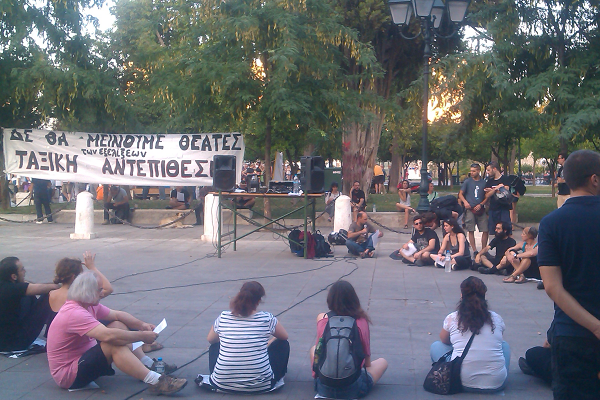
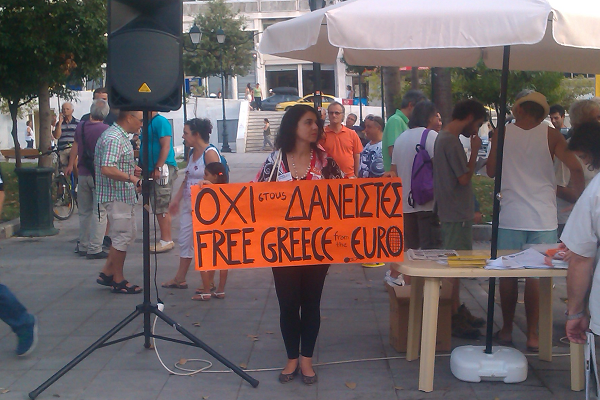
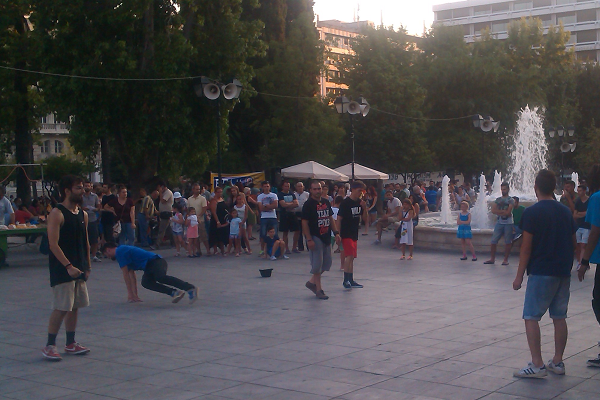
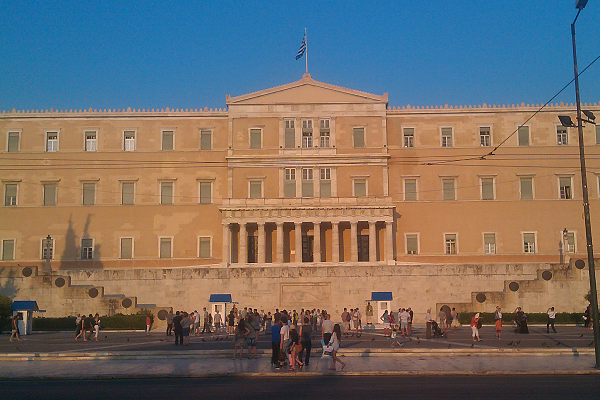
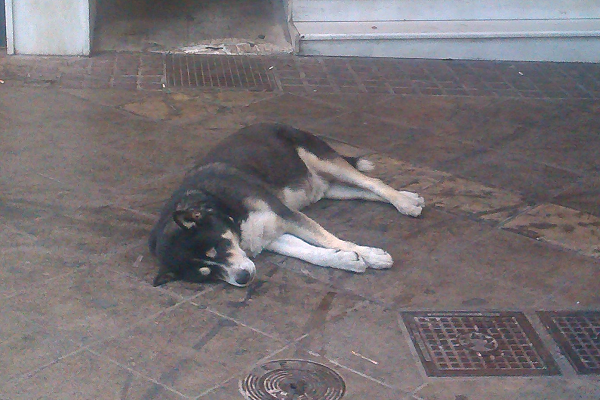
Groptimism
I consider myself an optimist. It hasn’t always been easy watching the Greek crisis unfold though. Not only were there many times during which it did take some extra effort to believe things would be alright in the end, there were also those commentators from either side of the political spectrum (and frustratingly often from outside Greece and with little understanding of the country) who knew how much better a Grexit and a proverbial middle finger to “the institutions” would be. If only they knew.
This morning, when I woke up from a rather short night’s sleep, there still wasn’t a deal. There was one a few hours later. Critics were quick to point out that the measures the Greek government has agreed to are pretty tough, which they are, while others made the point that Greece won’t ever be able to pay off all of its debts, which is also true. (I am actually in favour of debt restructuring, but at this point of time, with Greece seeking new loans, it would have made little to no difference.)
But the alternative would have been so much worse. For Europe, for the other euro countries but especially so for Greece. And politics is often about finding the miserable little compromise that hurts everyone least.
There are actually quite a few things in the deal that will be positive for Greece. Some of these are measures that will improve the country’s economic performance in the long run, but there is also an explicit mention of investments. One is right to see the many unemployed youth as a big problem for the country. But they are a huge potential too, which could be unlocked with the right investments.
For now, the banks are still closed though. They will remain so until at least Wednesday. After then capital controls will only gradually be lifted. The next weeks, we will no doubt see many protestors on Syntagma Square who will make it loud and clear that the deal goes against their ideology or their vested interests.
But some light can be seen flickering at the end of the tunnel. Let’s make sure we do get there. And let’s be kind to Mr Tsipras.
Grexit? Graccident? Here’s to Groptimism.
This afternoon, I took the metro to Kolonaki, an upmarket district just north of the center. Public transport is still free, hence there were no queues for the ticket machines, but the ATMs next to them did all have queues. While empty supermarket shelves may not be as prevalent as the media may suggest them to be, ATM queues are a very common sight — with the ATMs in our neighbourhood a notable exception.
In Kolonaki I went to a bookshop where I attended a discussion on the Greek crisis led by two experts: Stathis Kalyvas and Aristos Doxiadis; I am reading a book on Modern Greece by the former.
The discussion was in Greek, which was a bit of a problem as after seven months in Athens, Greek is still all… Well, that indeed. I ended up standing awkwardly near the back, playing with my phone while trying to pick up some names from the conversation: Tsipras of course, and Milosevic, as well as Krugman and Stiglitz, the latter two being economists who have been very vocal about where they think Greece should go next, but who won’t have to live through the mess if things go wrong.
Afterwards, I went to Syntagma Square for yet another pro-Europe demonstration. It was less crowded than those I attended last week and people seemed less passionate too. Chants of “Greece! Europe! Democracy!” quickly died down.
I was tired. Everyone else seemed tired too. Greece is tired. Two weeks of capital controls, much as they have changed the face of Greece surprisingly little, really do hurt.
Next to Syntagma Square, the government, with the explicit support of most of the opposition, was writing proposals that have since been sent to Brussels. There must be a deal on Sunday. There will be a deal.
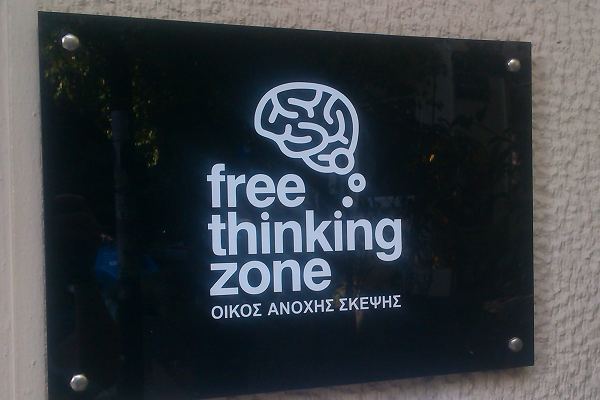
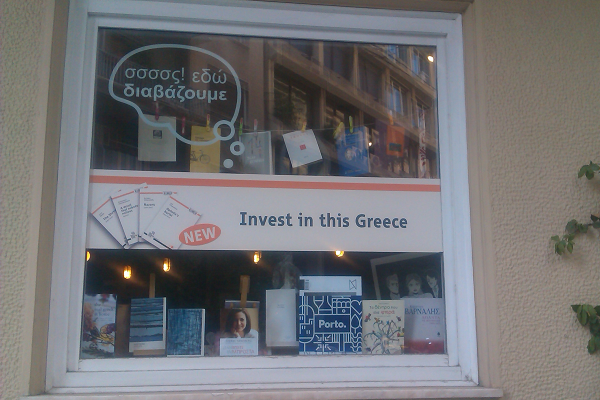

Short-term bank holiday
Today, we had trout for lunch. I felt an odd sense of doing something — spending money in the local economy — when I went to buy it from the supermarket. Actually, supermarkets don’t seem to be hit particularly hard and the images of empty shelves some media have shown are the exception rather than the norm.
It is the many small businesses selling non-essential goods that are hit hardest — and with them of course their owners, employees and families. With the banking system closed and a fear that things, at least when it comes to liquidity, could get worse, people are delaying the purchase of non-essential goods. One bookshop in Athens, one of the few that is still left in the city, reported sales have dropped 90% over the past 10 days.
Tonight it was announced that what has been called the “short-term bank holiday” (euphemism is a Greek invention too) has been extended until at least Monday, what will be its fifteenth working day. Lifting capital controls is much harder than introducing them.
The atmosphere in Greece remains hot — it was 34 degrees — but peaceful. Other cities and countries have responded worse to a loss of one of their sports teams. That too is worth noting.
Still, I remain optimistic that Sunday’s “deal or no deal” day will lead to the former and will at least give the country some breathing space. It desperately needs it.
The day after the night before
The banks in Greece didn’t magically open this morning — I think the only person who genuinely believed that would be the case is now at home, writing a few extra chapters for his book.
They’re likely going to stay closed for most of the rest of the week, which will continue to hurt people and businesses alike. It continues to surprise me how much life in Athens goes on as normal, how many people you still see in shops, in cafes and on the street. Greeks are a tough people.
Apparently, there are more than 500 foreign journalists in Athens right now; many of whom were recording their evening bulletins from Syntagma Square. I hope they’re spending their money generously as this country goes through another few more days of uncertainty.

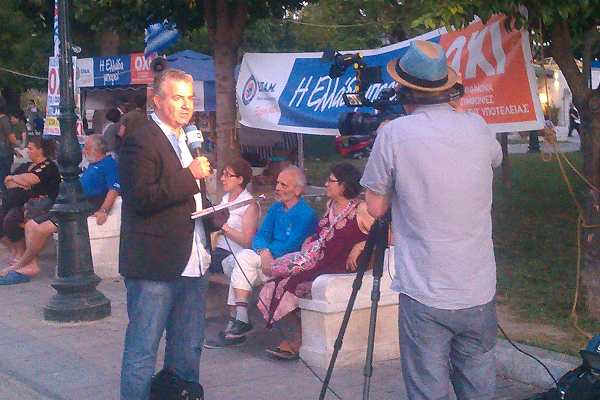

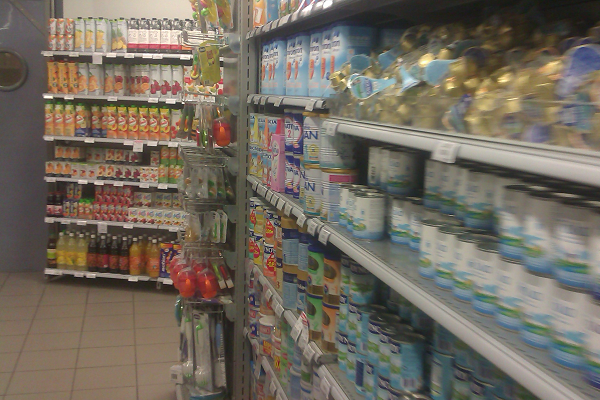
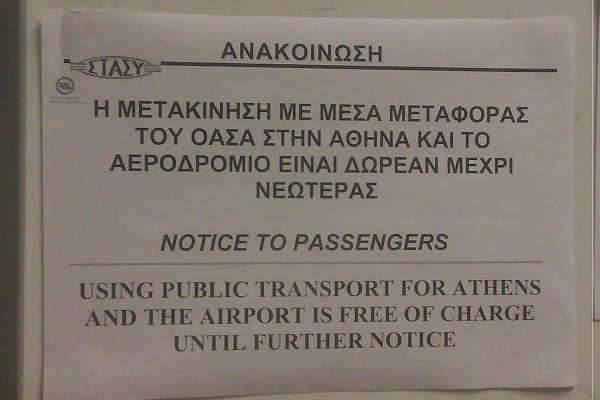
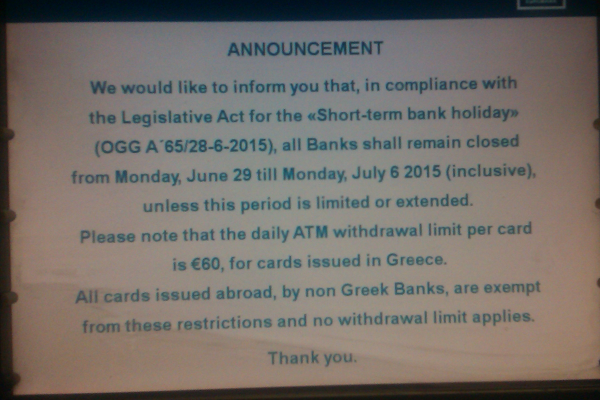
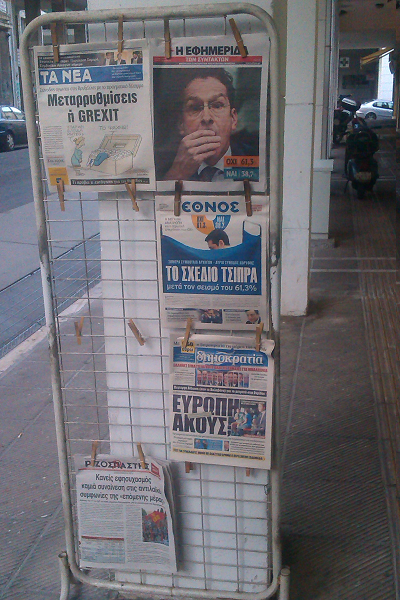
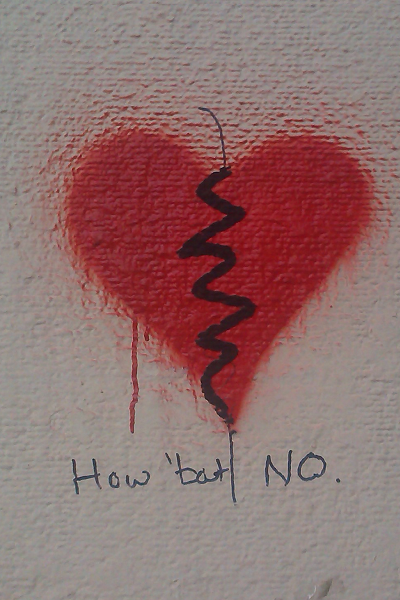
Ode to a Grecian country
When I first came to Greece in the winter of 2005, I did not have any special affinity with the country. I found it an interesting place, like I find any new place I visit interesting. I enjoyed being there and I have certainly enjoyed every visit since. But I don’t think I fell in love with the country.
That didn’t even change when I moved here six months ago, much as I had been looking forward to the move. I have thoroughly enjoyed life in Greece so far, but working from home for a UK company hasn’t made my life significantly different compared to all those years of living in England.
But something changed recently. I’ve read more about Greek politics and Greek society in the past weeks than I had in the years before. I found myself caring about the negotiations and the referendum, about the decisions of the Greek government and those of the institutions, not just because they will affect me, but because they will affect Greece.
It feels that after today, it has become a little bit harder to be optimistic about the near future of the country, but it’s certainly not impossible. And whatever happens, I really want to be here. I love Greece.
We are the 100%
I was at a neighbourhood supermarket today. As I have seen photos of supermarkets with empty shelves on the Internet, it is worth pointing out that this one was fully stocked; although it is also fair to say ours isn’t the neighbourhood where people would be the first to start panic-buying.
As always, there were many offers and they even tried to get me to subscribe to a customer loyalty card scheme. In many ways, even after the banking system has been closed for almost a week, life in Greece still continues to go on as normal.
The big question remains what will happen on Monday morning, when 45% of the country finds out that 55% has signed up for some tough measures that will affect everyone; or, when 45% finds out that 55% has put the country on a path that may lead to an exit from the euro zone — and possibly a much poorer standard of living.
And that’s what worries me most right now. There is a reason many thinkers (most notably that namesake of the current Greek prime minister Alexis de Tocqueville) have warned against the tyranny of the majority. Keeping the country united is going to be the biggest challenge for the foreseeable future. The good thing is that everything else will be easy compared to that.
Here’s to optimism.